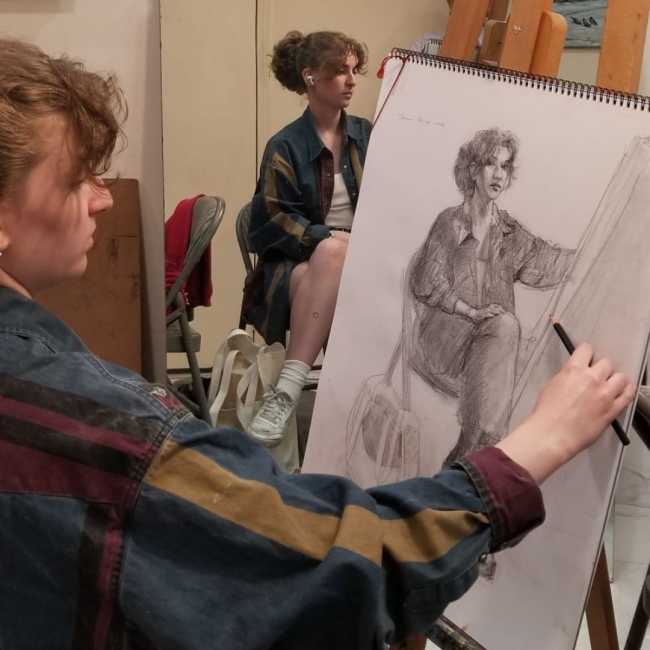Phone: (647) 894 7706

A portraiture class involves capturing the nuances of the human face. It involves a lot of different skills, such as indulging in oil painting classes, learning to use watercolors, acrylic paints, and more. However, at the most basic level, it is necessary to first sketch the portrait with a pencil. Here’s a detailed step-by-step process of drawing a beautiful portrait with just a pencil.
Before starting with the actual sketch, decide on a rough outline or plan on how you want it to be. This includes focusing on the pose, head position, and more.
Next, use an HB pencil or a similar alternative to very lightly draw the outline of the head. This includes figuring out the head shape, the centerline, and overall proportions. Use the rough sketch to execute the outline.
On the outline of the head, start adding some facial features. Once again, sketch very lightly and check the proportions, as you want to be able to edit it if required. At this stage don’t focus too much on details.
Now, add some tone to the portrait by focusing on shadows or hair tones. This will start to add a bit of depth to your sketch. All drawing classes focus on shading to add some intricacies to the artwork. Continue to deepen the shadows and the tones in layers for the best results.
The eye is the major focus in any sketch. Pay close attention as you add details to various features of the eyes such as eyelids, eye sockets, pupils, and eyebrows. Take care that the features of the eyes match your shadow profile.
Shading around the nose and mouth is relatively simple as it has soft corners. With ears, however, take care to not overdo the shadows nor leave it too unfinished. The ears are a bit tricky to master and require practice. Just ensure that it doesn’t distract the viewer from the overall features of the sketch.
If the subject has hair, detailing it can be painstaking. However, it is necessary for an accurate portrayal of the subject. Try to draw the hairs in a general direction in a clump-like format instead of focusing on individual hairs.
The last part of the process involves adding tiny touches and details to further increase the life-like nature of the sketch. This is rather subjective and depends on your sketch. For instance, some might require more shading around the eyes, while some might need to shade the nostrils for more depth. However, the principle of getting the basics right before getting to this stage remains constant.
Do you want to learn portraiture? Reach out to us at VR School of Art today. As a leading drawing class in North York, we also offer oil painting classes, landscape painting lessons, life model painting, drawing classes for kids, and more. For more details, contact us at 647-894-7706.